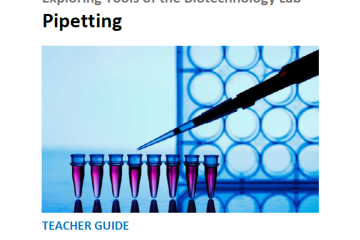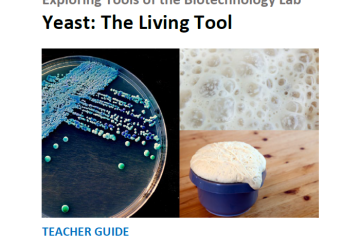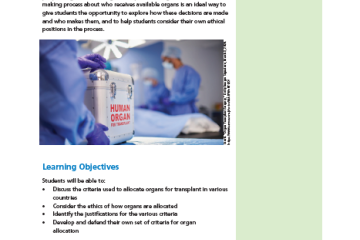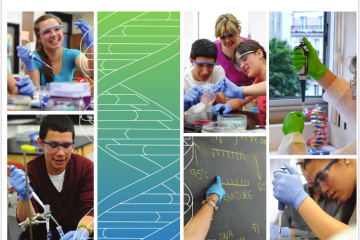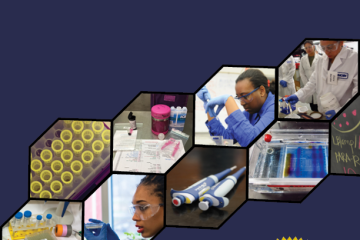
Protein Factory Game
This board game teaches students the fundamentals of transcription and translation. | These materials were developed by an ABE Master Teacher as part of the ABE Master Teacher Fellowship.
Exploring Tools of the Biotechnology Lab: Pipetting
The biotechnology industry has changed tremendously with the introduction of new tools and technologies. Many of these advances have changed the way scientists work, allowing them to accomplish tasks… Read more
Type(s): Teaching Materials, Classroom-based, Lab-based
Topic(s): Lab Techniques, Pipetting, Teaching and Learning, Differentiated Instruction
Education Levels: Lower Secondary
Exploring Tools of the Biotechnology Lab: Yeast – The Living Tool
Because the cellular processes of yeast are relatively easy to manipulate, it has been extensively used as a model organism in biotechnology research. Like human cells, yeast cells have a nucleus… Read more
Type(s): Teaching Materials, Classroom-based, Lab-based
Topic(s): Biotech & Medicine, Pharmaceuticals, Lab Techniques, Gene Editing, Gene Sequencing, Pipetting
Education Levels: Lower Secondary
Protein Factory Game
This board game teaches students the fundamentals of transcription and translation. | These materials were developed by an ABE Master Teacher as part of the ABE Master Teacher Fellowship. Read more
Type(s): Teaching Materials, Classroom-based, Web-based
Topic(s): Lab Techniques, Gene Expression
Education Levels: Lower Secondary, Upper Secondary
Who Decides? The Ethics of Organ Transplantation
In this pocket lesson, students learn about the process adopted in various areas of the world to decide who receives available organs. This content gives students the opportunity to explore how these… Read more
Type(s): Teaching Materials, Classroom-based, Pocket Lesson
Topic(s): Biotech & Medicine, Human Disease, Biotech & Society, Race & Genetics, Bioethics
Education Levels: Upper Secondary, Introductory
Introduction to Genomics and Bioinformatics Booklet
This workbook introduces students to the foundational concepts of bioinformatics and genomics and connects them to the ABE Foundations of Biotech labs. Read more
Type(s): Teaching Materials, Classroom-based, Web-based
Topic(s): Data Science, Bioinformatics
Education Levels: Upper Secondary, Advanced
Biotech Escape Room Puzzles
These "escape room" puzzles allow students to work through a variety of interesting biotechnology scenarios. Read more
Type(s): Teaching Materials, Classroom-based
Topic(s): Bioinformatics, Lab Techniques, Cloning, Pipetting, Teaching and Learning, Differentiated Instruction
Education Levels: Lower Secondary, Upper Secondary, Introductory
Kitten Paternity
Kitten Paternity Gel Electrophoresis Lab Read more
Type(s): Teaching Materials, Classroom-based, Lab-based
Topic(s): Lab Techniques, Gel Electrophoresis
Education Levels: Lower Secondary, Upper Secondary, Introductory
PTC Lab (Dutch)
The Traveling DNA Labs build a bridge between biology and chemistry at school and the latest developments in genomics, by letting students get to work with advanced techniques and current topics in… Read more
Type(s): Teaching Materials, Classroom-based, Lab-based
Topic(s): ABE Program, Lab Techniques, Gel Electrophoresis, Ligation, PCR, Pipetting, Restriction Enzymes
Education Levels: Upper Secondary, Introductory, Advanced
